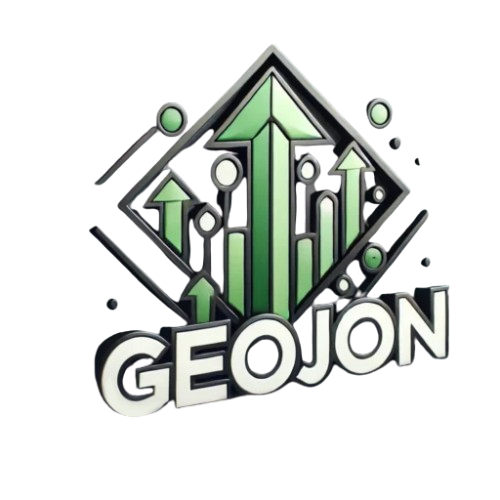
Key Takeaways:
- Expansion of Market Share: SearchGPT’s accessibility to free users is expected to increase OpenAI’s market penetration, especially among casual users.
- Enhanced Features: Integration of maps, faster response times, and voice queries elevate the user experience.
- Industry Disruption: Traditional search engines face stiff competition as AI-powered solutions become mainstream.
- Future Prospects: The implications for ad revenue, data collection, and user retention are monumental.
Time to Read: 7 Minutes
SearchGPT Launches to Free Users
SearchGPT, OpenAI’s generative AI-based search platform, integrates conversational AI with real-time search capabilities. Previously exclusive to paid subscribers, this tool is now open to all users, marking a significant step towards the democratization of advanced search technology. Unlike traditional search engines that present lists of hyperlinks, SearchGPT delivers context-aware, conversational responses tailored to the user’s intent.
The decision to open SearchGPT to free users comes at a pivotal moment for OpenAI. By expanding access, the company seeks to enhance its user base, stress-test its platform’s scalability, and exert competitive pressure on entrenched industry players like Google and Bing. This move is not just a product update; it’s a calculated strategy to disrupt the conventional search experience and accelerate the adoption of AI-powered tools in everyday tasks.
Features That Define SearchGPT
The latest iteration of SearchGPT introduces groundbreaking features that elevate its utility and user experience. One of the most notable updates is the introduction of voice query functionality, which allows users to perform searches using natural spoken language. This capability is particularly appealing for those seeking hands-free interaction or facing accessibility challenges. By leveraging advanced natural language processing, voice queries on SearchGPT feel intuitive and precise, setting a new standard for AI-driven search tools.
Speed is another area where SearchGPT has made significant strides. Optimized for rapid response times, the platform now rivals traditional search engines in delivering results almost instantaneously. While server load prioritization may differ for free users compared to premium subscribers, the general performance remains impressive. This improvement in speed underscores OpenAI’s commitment to providing a seamless user experience.
The integration of maps into SearchGPT represents a major leap forward in functionality. Users can access real-time location-based search results, directions, and information about nearby services. This addition brings SearchGPT closer to competing with established geographic tools like Google Maps, but with the added benefit of conversational interaction. For example, users can ask detailed questions about a location and receive nuanced, context-rich answers.
Mobile optimization has also been a key focus in this update. SearchGPT’s mobile app enhancements ensure that the platform performs seamlessly across various devices, addressing the critical need for reliable search tools in today’s mobile-first world. These updates collectively make SearchGPT a formidable competitor in the search engine space, offering a user-friendly and technologically advanced alternative to traditional platforms.

A Comparative Look: SearchGPT vs. Traditional Engines
| Feature | SearchGPT | Traditional Engines (e.g., Google) |
|---|---|---|
| Conversational Results | Contextual, dialogue-based answers | List of hyperlinks |
| Maps Integration | Real-time, interactive geographic data | Standard maps features |
| Voice Search | Advanced, AI-based natural language | Basic keyword interpretation |
| Speed | Near-instant responses | Varies with server and query load |
| Accessibility | Fully accessible, free core features | Free, but ad-driven |
| Metric | Current (2023) | Projected (2025) |
| Active Users (Millions) | 100 | 150–300 |
| Market Share (%) | 5 | 10–15 |
SearchGPT’s unique features place it ahead of traditional engines in terms of innovation, accessibility, and user experience. Its AI-driven results, maps integration, and voice query capabilities mark a departure from the hyperlink-based approach, offering a more conversational and user-friendly solution.
The Market Impact of SearchGPT
The decision to make SearchGPT available to free users is expected to trigger a surge in market share for OpenAI. Industry analysts predict that this move will attract millions of new users, particularly those in younger demographics and tech-savvy professionals who are eager to adopt cutting-edge technology. With an estimated 25–50% growth in user adoption over the next year, SearchGPT’s expansion is poised to disrupt the dominance of established search platforms.
As OpenAI’s user base grows, so too does its revenue potential. The surge in active users introduces a range of monetization opportunities. For instance, the conversational interface of SearchGPT opens doors for innovative advertising models. Instead of conventional banner ads or sponsored links, businesses could integrate contextual, AI-driven promotions directly into the conversational flow. Additionally, the platform’s robust analytics capabilities provide valuable insights into user behavior, enabling OpenAI to refine its offerings and attract premium-tier upgrades from free users.
Enhancing User Experience
Feedback from existing premium users has already set high expectations for the free-tier experience. Surveys indicate that features like voice search, fast response times, and maps integration are particularly well-received. For free users, these features promise to deliver a similarly high level of satisfaction, albeit with occasional performance adjustments to accommodate peak server loads. By prioritizing user-centric design and continuous improvement, OpenAI aims to maintain its competitive edge and foster long-term user loyalty.
FAQ Section
1. What is SearchGPT, and how does it differ from traditional search engines?
SearchGPT is OpenAI’s AI-powered search platform that uses conversational AI to deliver context-aware responses instead of hyperlink-based results. Unlike traditional engines, it integrates maps and voice search for a more interactive and personalized experience.
2. Is SearchGPT free for all users?
Yes, the core features of SearchGPT, including voice queries, maps integration, and rapid responses, are free. Premium features and faster processing speeds are available through paid subscriptions.
3. How does SearchGPT ensure user privacy?
OpenAI emphasizes data protection by anonymizing user queries and implementing robust security measures to safeguard information. The platform is designed with user privacy as a priority.
4. What devices are compatible with SearchGPT?
SearchGPT is optimized for desktop and mobile devices, ensuring a seamless experience across all platforms. Its mobile app enhancements cater to the growing need for reliable, on-the-go search tools.
5. Can SearchGPT handle high traffic volumes effectively?
While performance may vary during peak times, OpenAI has designed the platform to prioritize efficiency and user satisfaction. Free users may experience minor delays compared to premium subscribers during periods of high traffic.
Looking Ahead
The addition of SearchGPT to OpenAI’s free-tier offering is a watershed moment for the search industry. By combining accessibility with cutting-edge technology, OpenAI has created a platform that not only challenges the status quo but also sets a new benchmark for user experience. In the months to come, the competition among search providers is likely to intensify, with traditional engines racing to integrate similar innovations.
At the same time, OpenAI’s focus on enhancing SearchGPT’s capabilities suggests a promising trajectory for the platform. Future updates are expected to improve its contextual understanding, expand its feature set, and refine its monetization strategies. For users, these advancements mean a more intuitive, efficient, and enjoyable search experience. For the industry as a whole, the rise of SearchGPT signals a shift towards AI-powered solutions that redefine what search can achieve.
Search
Recent Posts
ChatGPT Search Goes Account-Free: The Future of
- February 7, 2025
- 13 min read
Strategies to Dominate Consumer Searches with AI
- January 13, 2025
- 15 min read
Boost Visibility: Integrate GEO with SEO Strategies
- January 6, 2025
- 6 min read








